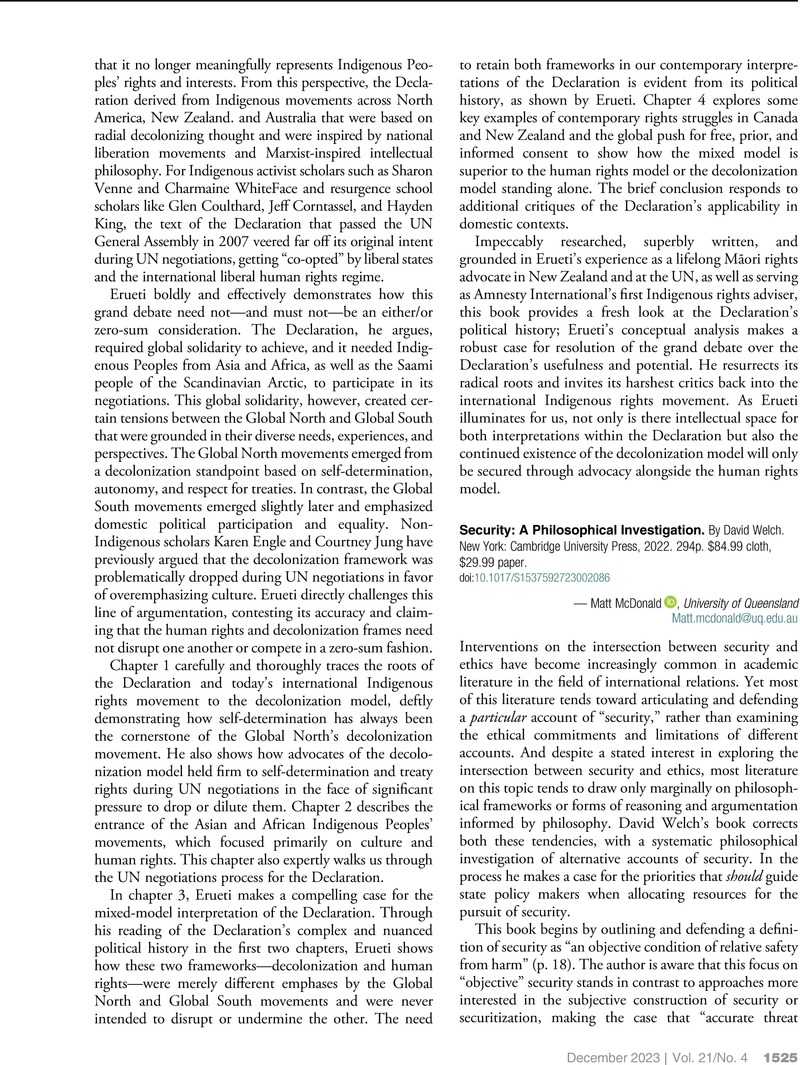No CrossRef data available.
Article contents
Security: A Philosophical Investigation. By David Welch. New York: Cambridge University Press, 2022. 294p. $84.99 cloth, $29.99 paper.
Review products
Security: A Philosophical Investigation. By David Welch. New York: Cambridge University Press, 2022. 294p. $84.99 cloth, $29.99 paper.
Published online by Cambridge University Press: 01 December 2023
Abstract
An abstract is not available for this content so a preview has been provided. Please use the Get access link above for information on how to access this content.

- Type
- Book Reviews: International Relations
- Information
- Perspectives on Politics , Volume 21 , Issue 4: Special Section: Methods, Ethics, Motivations: Connecting the How and Why of Political Science , December 2023 , pp. 1525 - 1526
- Copyright
- © The Author(s), 2023. Published by Cambridge University Press on behalf of the American Political Science Association


